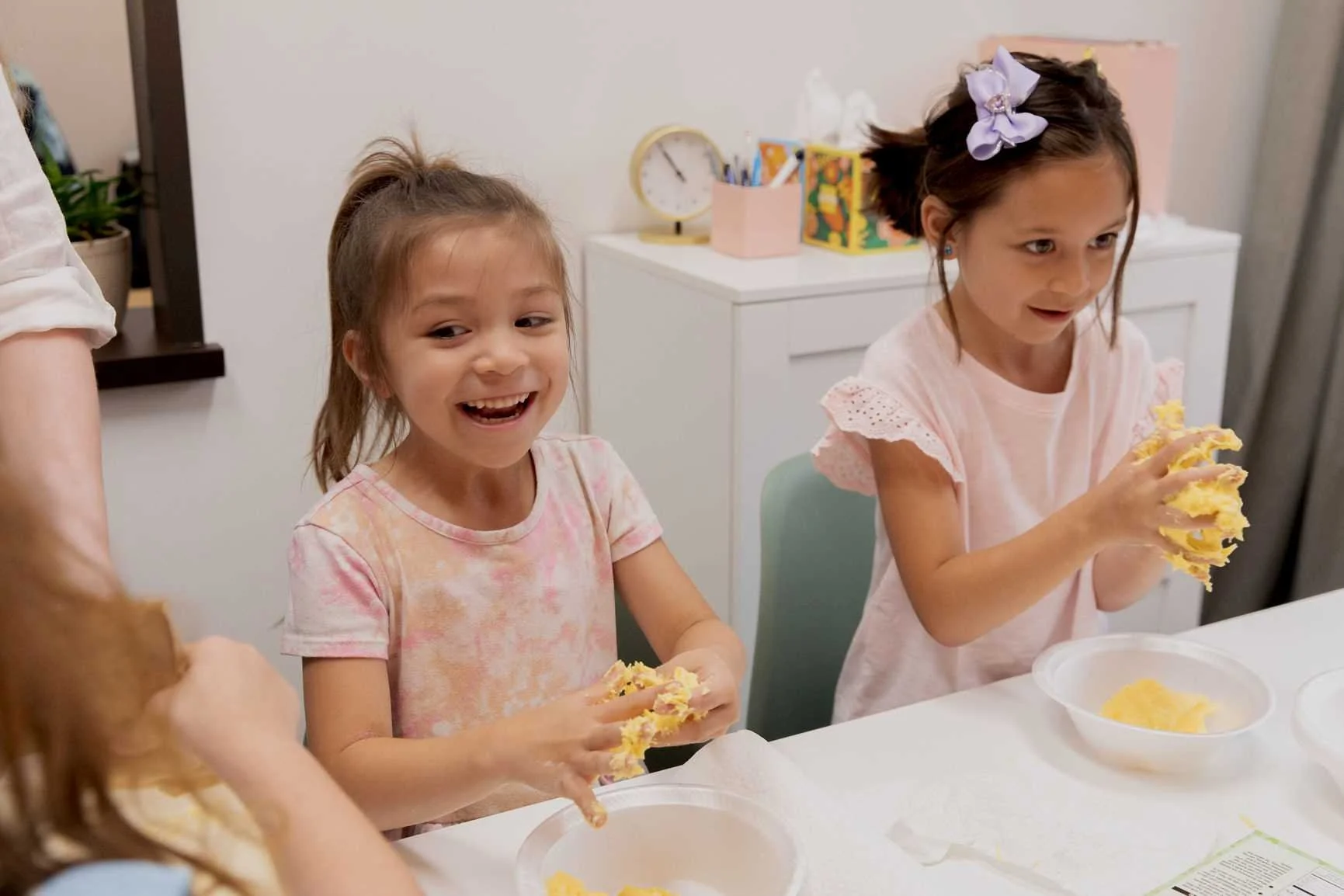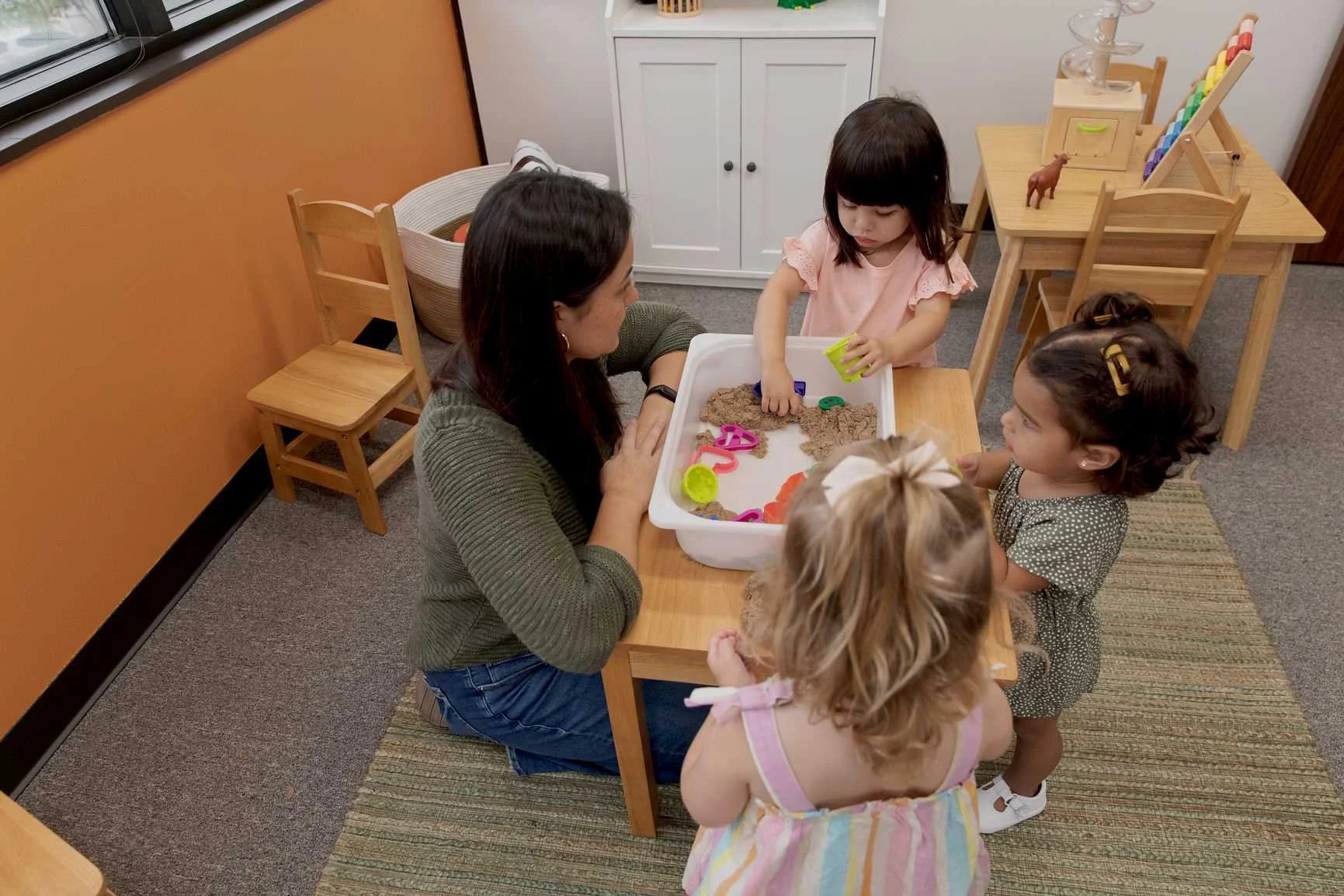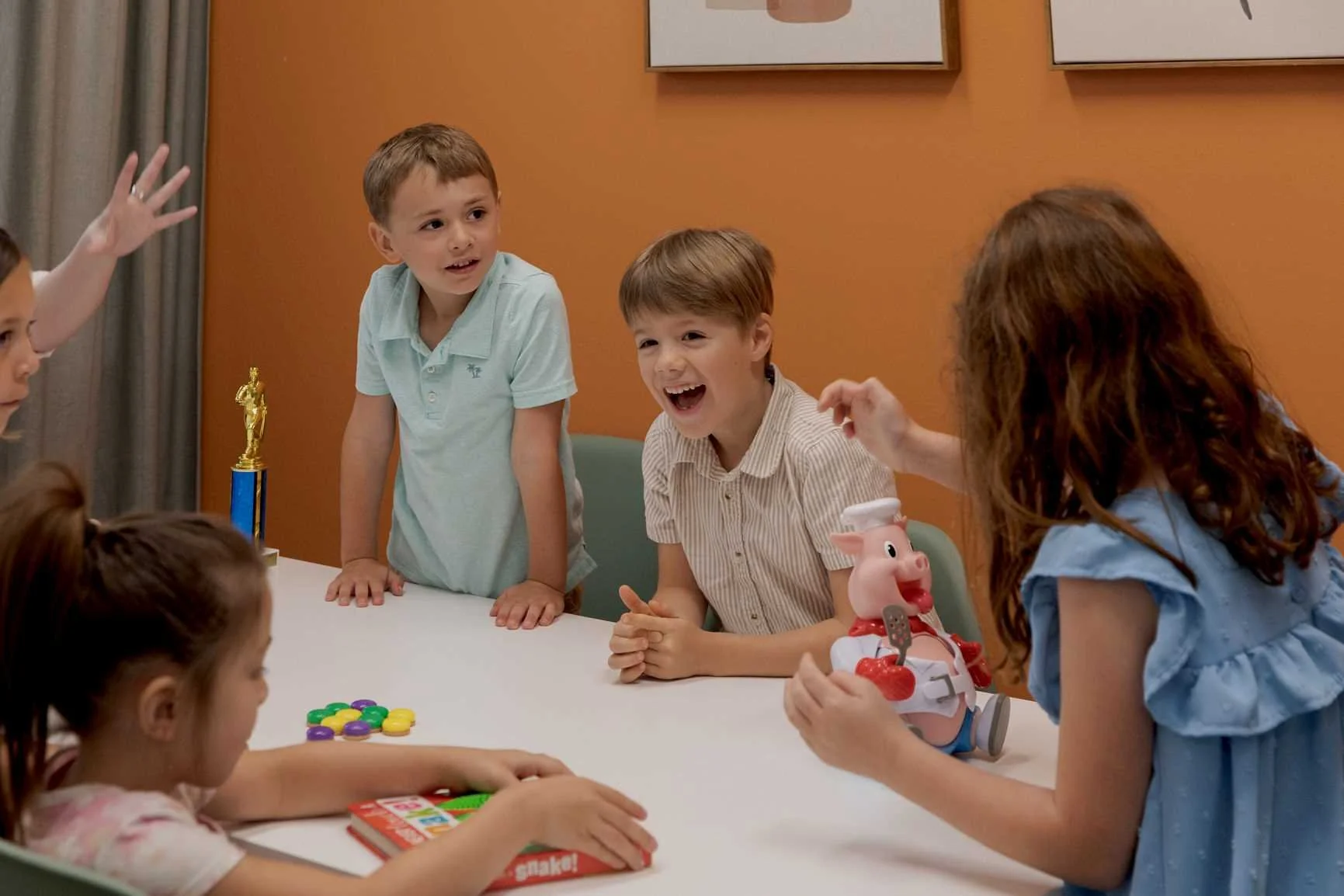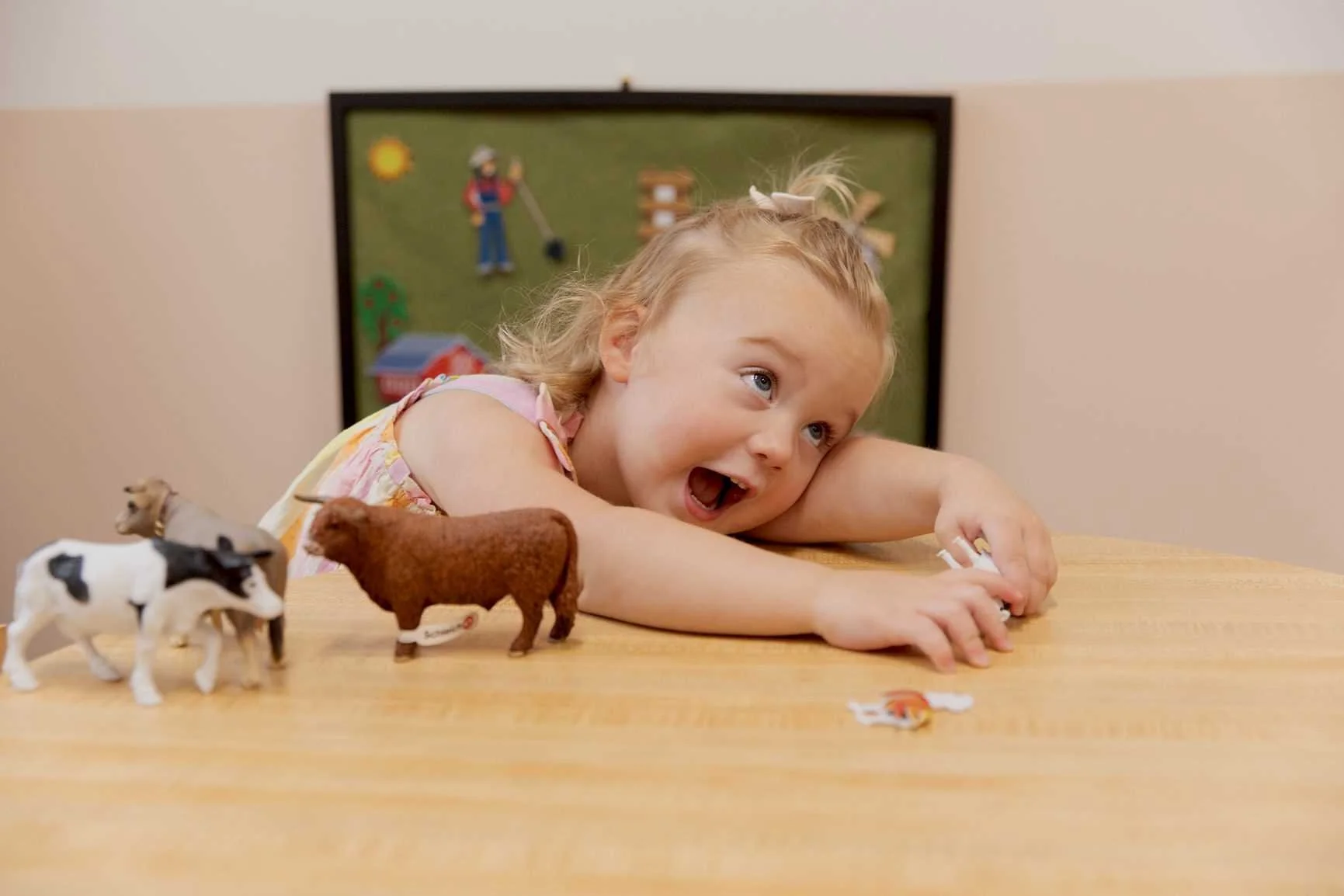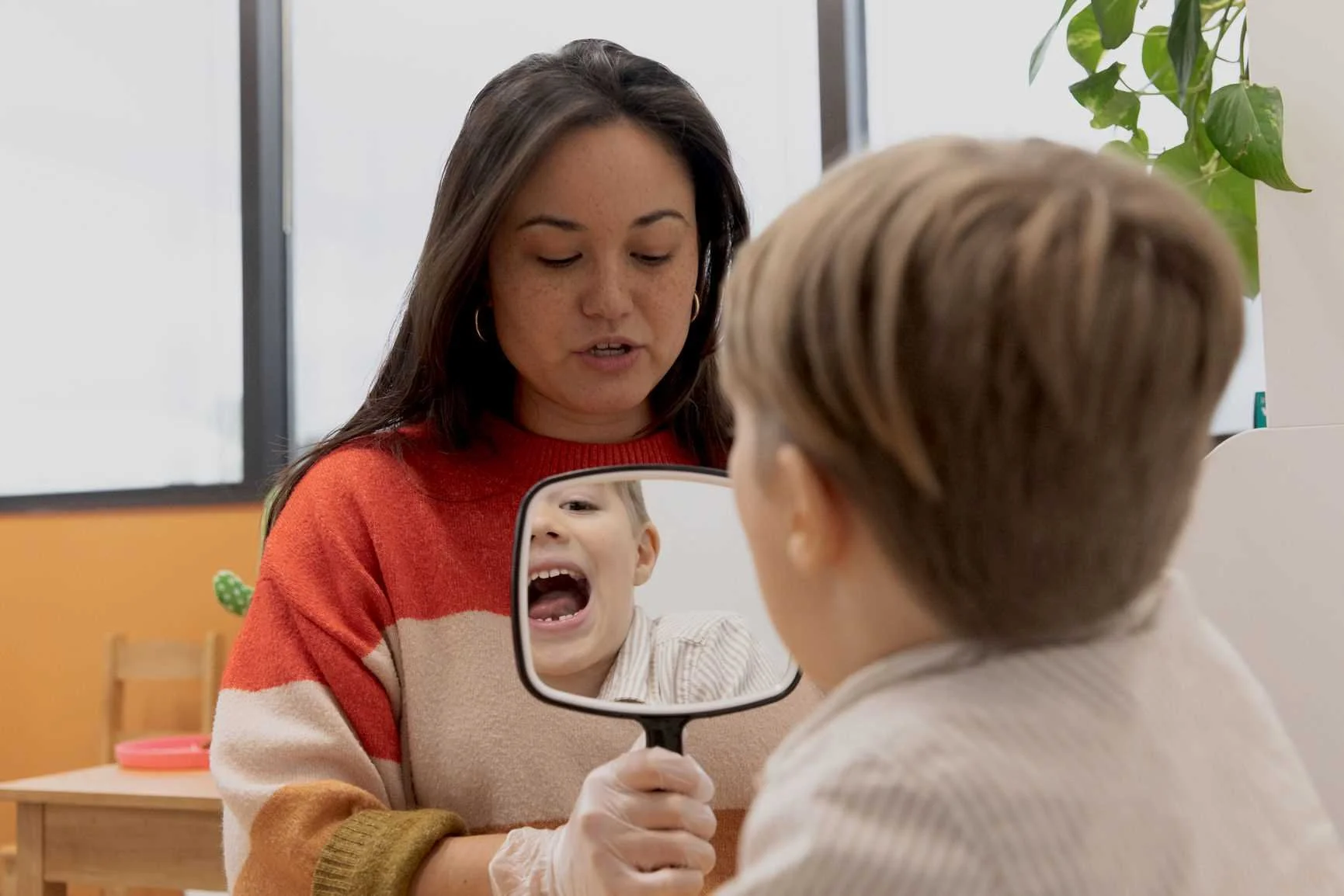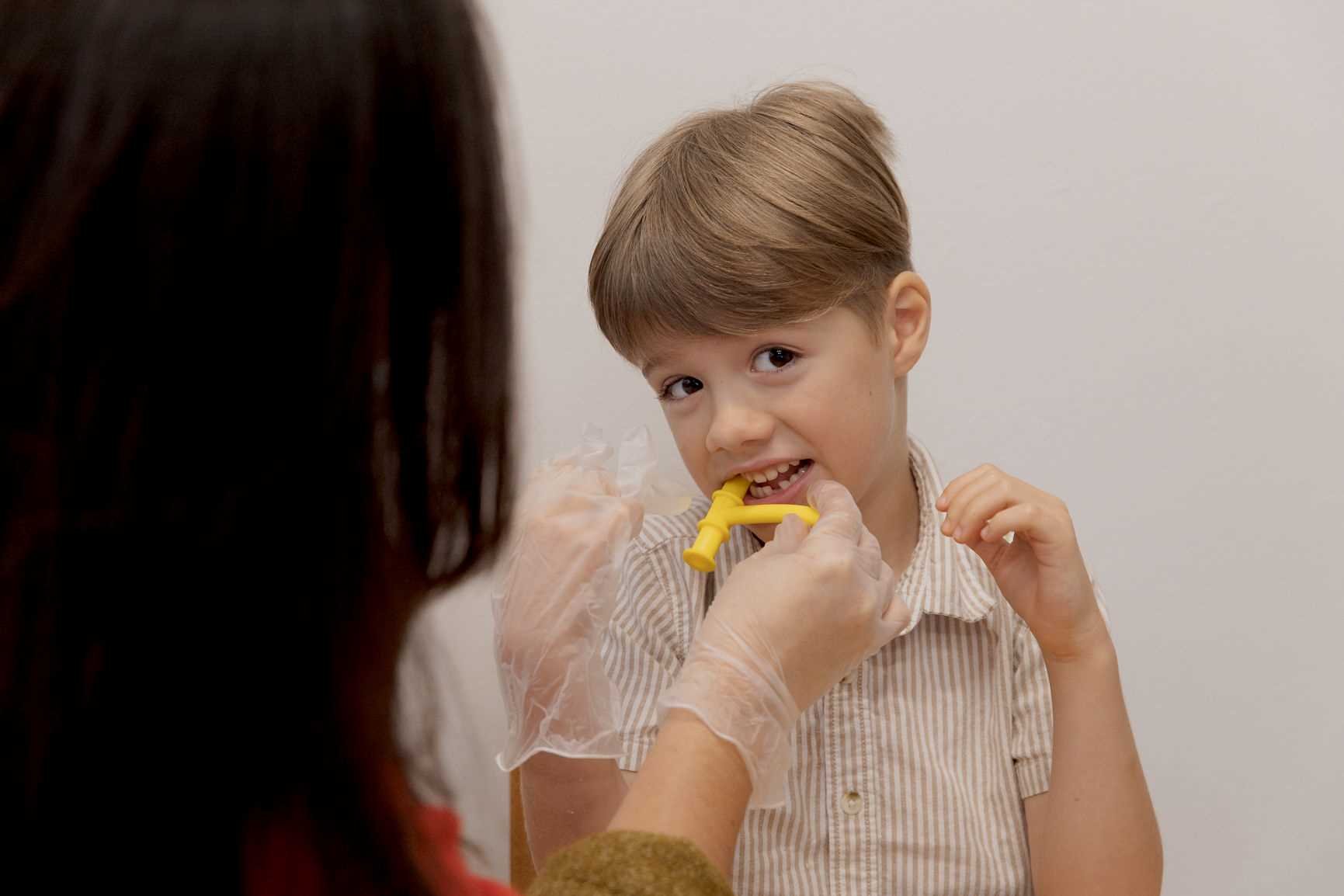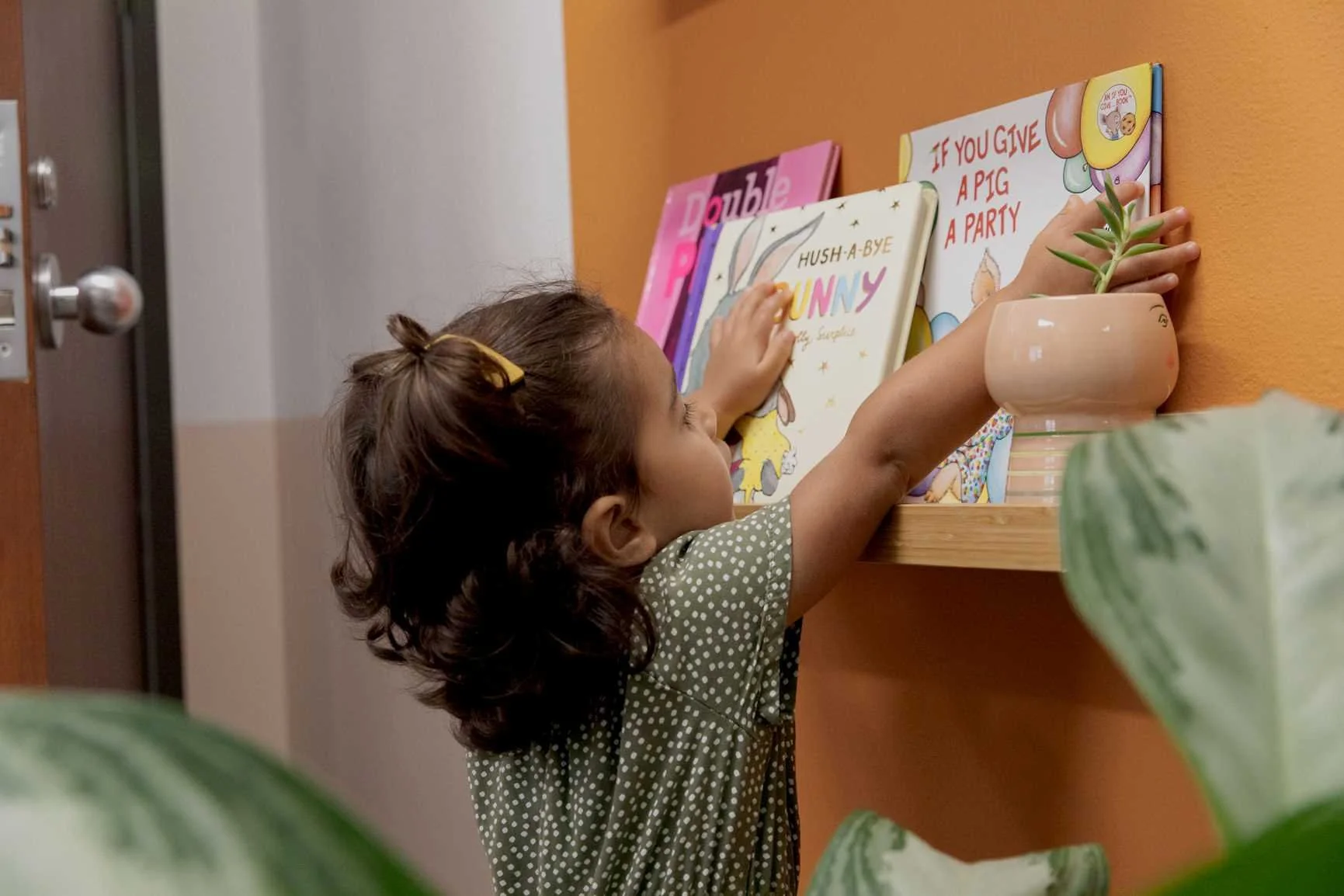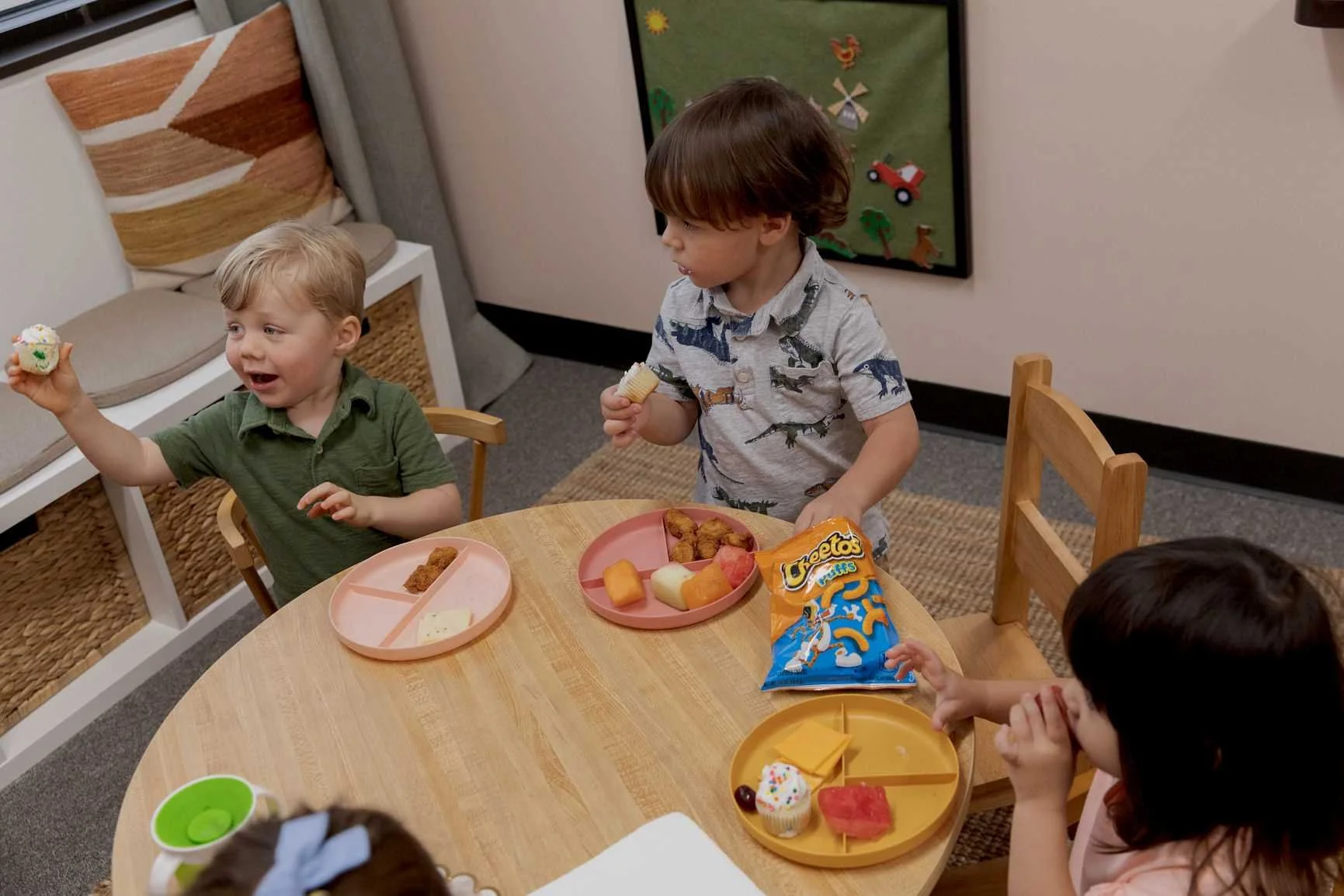Social Skills Therapy
What Are Social Skills?
Social skills, also called social communication skills, are the ways we connect and build relationships with others through both language and behavior. For many children, these skills develop naturally through play and daily interactions. For others, understanding social cues, joining conversations, or interpreting emotions can be more challenging.
Difficulties with social communication may appear as:
Trouble joining play or group activities
Challenges making or keeping friends
Difficulty understanding jokes, sarcasm, or figurative language
Talking “at” others instead of “with” them
Trouble reading body language or facial expressions
Difficulty taking turns or staying on topic in conversation
When social communication is hard, it can affect confidence, classroom participation, and relationships. The good news is that with early support, children can learn the skills they need to connect and thrive in their social world.
When to Seek Social Skills Treatment
You may want to schedule a social communication evaluation if your child:
Seems withdrawn or anxious in group settings
Has strong vocabulary but struggles with back-and-forth conversation
Doesn’t seem to notice others’ reactions or emotions
Has difficulty adjusting language for different people or settings
Becomes frustrated or misunderstood in social situations
Has been diagnosed with ADHD, autism spectrum disorder (ASD), or language delay and struggles with social interactions
Our therapists look at the whole child — not just their speech — to understand how communication, emotional regulation, play, and confidence come together.
Pragmatic Language Disorders
The term “pragmatic language” refers to how we use language in various social contexts to understand or express a message. When we participate in conversation with others, we rely on more than our words alone to convey what we really mean. In many cases, listeners must “read between the lines” by considering the speaker’s nonverbal cues, background information, and the context in which the message is delivered. Pragmatic language disorders are identified when there are specific deficits in how one uses language in relation to other people. Individuals with a pragmatic language disorder may have difficulty understanding sarcasm, interpreting figurative language, maintaining joint attention, building new relationships, and participating in reciprocal conversation. They may benefit from support with identifying and expressing their emotions, making inferences, and understanding or using facial expressions and gestures in support of a verbal message.
Treatment for Social Pragmatic Communication Disorder
When a pragmatic language disorder is suspected, we conduct a comprehensive evaluation to determine a child’s individual needs for social skill development. Depending on the child’s age, the evaluation may include assessment of receptive and expressive language, play skills, joint attention, turn-taking, conversational skills, figurative language, and inferencing abilities. If significant concerns are identified, our pediatric SLPs create a plan of care with long and short-term goals and recommendations for parent strategies. In some cases, a social skills group may be recommended to increase opportunities to practice during peer interactions.
Schedule your complimentary consultation.
We want your child to be healthy, functional, and happy. If your child wakes up not rested, appears to be struggling with attention, self regulation, emotional regulation, communication, or you’ve recently received a diagnosis, or your pediatrician, teacher, or other professional is recommending speech therapy, book a call today to learn more about how we can help.
Speech Therapy Services

